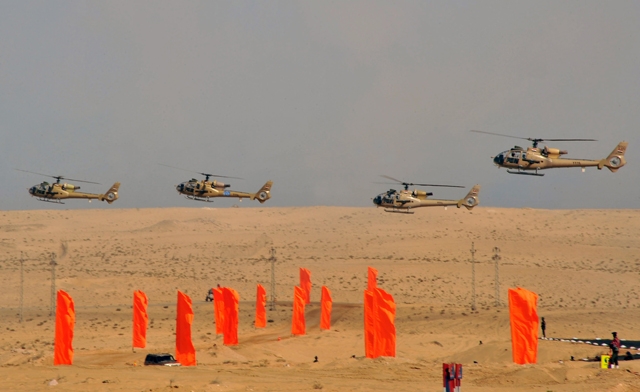US President Donald Trump announced Saturday that, following American mediation, India and Pakistan have agreed to an immediate ceasefire, halting what had become the most serious military escalation between the nuclear-armed neighbors in years.
The announcement came just hours after Pakistan launched a large-scale military operation against India, dubbed “Al-Bunyan Al-Marsous” (“The Solid Structure”). Pakistani military officials claimed their forces struck three Indian air bases—Adampur, Pathankot, and Baimus—using Fatah-1 and Fatah-2 precision-guided missiles, with more than 50 warplanes reportedly involved in the strikes. The Pakistani army said it successfully destroyed several Indian missile stockpiles and that operations were ongoing across multiple areas inside Indian territory.
Meanwhile, residents in Karachi, Pakistan’s economic capital, reported loud explosions in sensitive zones near the port and military compounds. Heavy gunfire was also heard in Peshawar, in the country’s northwest. In response, Pakistani authorities extended the closure of national airspace until Sunday at noon, citing the risk of further hostilities.
This escalation followed claims from Pakistan that Indian fighter jets had launched overnight strikes on several Pakistani airbases near Islamabad, including Noor Khan, Murid, and Sher Kot. Pakistan alleged that six ballistic missiles were launched from India’s Adampur base—one misfired and landed inside the base itself, while the others struck locations in India’s Punjab region near Amritsar.
Adding to the intensity, Pakistan also claimed to have destroyed an Indian S-400 air defense battery in Adampur using a hypersonic missile, estimating the system’s value at $1.5bn. However, Indian military sources rejected the claim, with The Indian Express quoting a senior official who said the system remained intact and operational.
India responded by announcing the interception and downing of several Pakistani drones over the Khassa area in Punjab’s Amritsar district. The Indian military condemned the drone activity as a “blatant violation of sovereignty” and warned of further responses to what it called “provocative and dangerous behavior.” Meanwhile, authorities in Jammu, part of the Indian-administered Kashmir region, reported that five civilians were killed due to Pakistani shelling.
As regional tensions surged, international diplomatic efforts accelerated. Saudi Foreign Minister Prince Faisal bin Farhan held urgent calls with his Indian and Pakistani counterparts to encourage restraint and explore avenues for de-escalation.
Pakistani Foreign Minister Ishaq Dar stated in televised comments that Pakistan was willing to consider de-escalation “if India refrains from further attacks,” but warned of retaliation if hostilities resumed. Dar said he conveyed this message directly to US Secretary of State Marco Rubio, who reached out after consultations with New Delhi.
Rubio, according to a statement from the US State Department, offered Washington’s assistance in facilitating “constructive talks” between both sides to prevent the situation from spiraling into full-scale war. Spokeswoman Tammy Bruce said Rubio “urged both parties to exercise maximum restraint and engage in direct dialogue.”
The G7 nations also released a joint statement expressing “deep concern” over the flare-up and called for “immediate de-escalation,” urging both sides to avoid actions that could further destabilize South Asia.
New Delhi reiterated that it “does not seek escalation” but would “respond decisively” to any aggression. Indian officials signaled a willingness to uphold the ceasefire if Pakistan acted in kind.
Tensions between India and Pakistan—especially over the disputed region of Kashmir—have persisted since the 1947 partition of British India. The two countries have fought several wars and numerous skirmishes, often along the Line of Control. With both nations in possession of nuclear weapons, the latest escalation triggered alarm worldwide, underscoring the urgent need for sustained diplomatic engagement.

